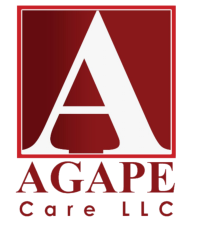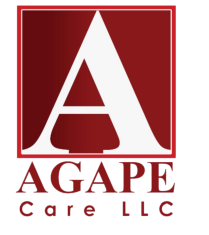As our parents age, their nutritional needs change, requiring more thoughtful meal planning to keep them healthy and energized. Ensuring they receive the proper nutrients is crucial for maintaining their overall well-being and quality of life. Healthy meal planning can prevent malnutrition, boost immune systems, and manage chronic health conditions, making it a vital part of elder care.
Understanding the unique dietary needs of aging parents can be challenging, especially with common issues like decreased appetite and dietary restrictions. However, with the right knowledge and strategies, you can create meal plans that are both nutritious and enjoyable. This involves balancing essential nutrients, accommodating dietary limitations, and making meals your parents will look forward to eating.
Meal preparation goes beyond just cooking; it requires planning, creativity, and sometimes external help. From weekly shopping lists to simple recipes, making healthy meals accessible and appealing for your aging parents is essential. By focusing on balanced diets, key nutrients, and practical meal preparations, you can significantly enhance their health and happiness. Additionally, addressing hydration and healthy snacking ensures they stay well-nourished throughout the day.
Creating a nutritious and appealing meal plan is an ongoing process that adapts to the evolving needs of your aging parents. With careful planning and a bit of creativity, you can ensure they enjoy their meals while meeting their specific health requirements.
Nutritional Needs of Aging Parents
Importance of Balanced Diets
A balanced diet is essential for aging parents as it provides the necessary nutrients for maintaining energy levels, supporting bodily functions, and preventing chronic diseases. As we age, our metabolism slows down, and our bodies may not absorb nutrients as efficiently. Therefore, consuming a variety of foods from all food groups becomes crucial. Balanced diets should include fruits, vegetables, whole grains, lean proteins, and healthy fats. This variety ensures that your parents receive essential vitamins and minerals needed for overall health.
Key Nutrients for Elderly Health
Certain nutrients are particularly important for elderly health. Calcium and Vitamin D are vital for bone health, helping to prevent osteoporosis. Fiber aids in digestion and helps prevent constipation, which can be common in older adults. Potassium helps to maintain healthy blood pressure levels. Omega-3 fatty acids support brain health and can reduce inflammation. It’s also essential to include B vitamins, which support energy and cognitive function. Ensuring that their diet includes these key nutrients can significantly improve their quality of life.
Common Dietary Restrictions to Watch
As we age, specific dietary restrictions may become necessary due to health conditions or medications. Many older adults need to limit their sodium intake to manage blood pressure and reduce the risk of heart disease. Those with diabetes must monitor their carbohydrate intake to maintain proper blood sugar levels. Lactose intolerance may develop, requiring alternatives to dairy products. Be aware of any food allergies or sensitivities, and work with healthcare providers to create a diet plan that accommodates these restrictions. Understanding and managing these dietary needs can help prevent complications and ensure your parents remain healthy.
Planning and Preparing Meals
Tips for Weekly Meal Planning
Planning meals for the week can save time and reduce stress. Start by making a list of your parent’s favorite healthy foods and incorporate them into a weekly menu. Balance each meal with proteins, fibers, and healthy fats. Take into consideration any special dietary needs and aim for variety to keep meals interesting. Create a shopping list based on the meal plan, which helps to avoid unnecessary purchases and ensures you have everything needed for the week.
Easy-to-Prepare Recipes
Simple recipes can make meal preparation easier and more enjoyable. Focus on dishes that require minimal ingredients and steps. Soups and stews are excellent options as they can be made in large batches and frozen for later use. Salads with a variety of vegetables, lean proteins, and healthy dressings can be both nutritious and quick to prepare. Smoothies are another easy option and can be packed with fruits, vegetables, and proteins. Find recipes that can be prepared in advance and stored, reducing the daily cooking hassle.
Using Meal Prep Services
Meal prep services can be a convenient solution if preparing meals becomes too challenging. These services offer pre-prepared meals that cater to specific dietary needs and preferences. Many meal prep companies provide options for low-sodium, diabetic-friendly, and heart-healthy meals. They can customize portion sizes and even offer organic and locally sourced ingredients. Using these services ensures that your aging parents have access to nutritious meals without the daily effort of cooking. Always check reviews and consult with a dietitian to choose a reputable service that meets your parents’ needs.
Overcoming Appetite and Eating Challenges
Strategies to Improve Appetite
Improving an aging parent’s appetite can be achieved with a few simple strategies. Start by creating a regular meal schedule, as consistent meal times can help boost appetite. Smaller, more frequent meals may be more appealing than three large ones. Incorporate their favorite foods into the menu, ensuring they still fit within a healthy diet. Aromatic herbs and spices can enhance the flavor of meals, making them more enticing. Encourage social meals, where they eat with family or friends, as this can make the experience more enjoyable and increase their desire to eat.
Managing Chewing and Swallowing Difficulties
Chewing and swallowing difficulties are common as we age, but they can be managed with the right approaches. Soft and easy-to-chew foods like mashed potatoes, scrambled eggs, and yogurt can make eating easier. Cutting food into small, manageable pieces and using cooking methods like steaming and slow cooking can help make food more tender. Thickening agents can be added to liquids to make swallowing safer. Consult with a healthcare provider or a speech therapist if these issues persist, as they can provide tailored recommendations.
Making Meals Visually Appealing
The visual appeal of food can greatly influence appetite. Bright, colorful meals are more attractive and can stimulate a desire to eat. Use a variety of vegetables and fruits to add color to the plate. Presenting food neatly and using garnishes like fresh herbs can make meals look more appetizing. Serving food on contrasting plates can also enhance the visual experience. A little creativity in presentation can go a long way in making meals more appealing to aging parents.
Hydration and Healthy Snacking
Importance of Staying Hydrated
Staying hydrated is crucial for overall health, especially for aging parents. Dehydration can lead to various health issues like urinary tract infections, kidney problems, and confusion. Encourage regular fluid intake by offering water frequently throughout the day. Other hydrating options include herbal teas, broths, and water-rich fruits like watermelon and cucumbers. Make a habit of keeping a water bottle within easy reach to remind your parents to drink fluids regularly.
Healthy Snack Options
Healthy snacks can keep energy levels stable and provide essential nutrients. Good options include fresh fruit, vegetable sticks with hummus, yogurt, and whole-grain crackers with cheese. Nuts and seeds offer a nutritious and satisfying option. Ensure snacks are easy to eat and appealing. Preparing small snack boxes with variety can make snacking convenient and enjoyable for your aging parents.
Signs of Dehydration and Prevention Tips
Know the signs of dehydration to act quickly if needed. Common symptoms include dry mouth, dark-colored urine, fatigue, dizziness, and confusion. Encourage sipping water throughout the day rather than drinking large amounts at once. Set reminders for fluid intake and monitor their daily consumption. Offering hydrating snacks, such as fruits and vegetables, can also contribute to overall hydration. Being proactive about hydration helps keep your parents healthy and well.
Conclusion
Ensuring that our aging parents maintain healthy eating habits is vital for their overall well-being. By understanding their nutritional needs, planning balanced meals, addressing appetite challenges, and promoting hydration, we can significantly improve their quality of life. Proper meal planning and preparation are essential components of elder care that require attention and dedication.
At Agape Care LLC, we understand the challenges of caring for aging parents. Our in home care services in Houston, Texas, are designed to support families in providing the best possible care for their loved ones. If you need assistance with meal planning, health monitoring, or any other aspect of senior care, reach out to us today. Our team is here to help ensure your parents live healthy, happy lives. Contact Agape Care LLC to learn more about how we can assist you.


